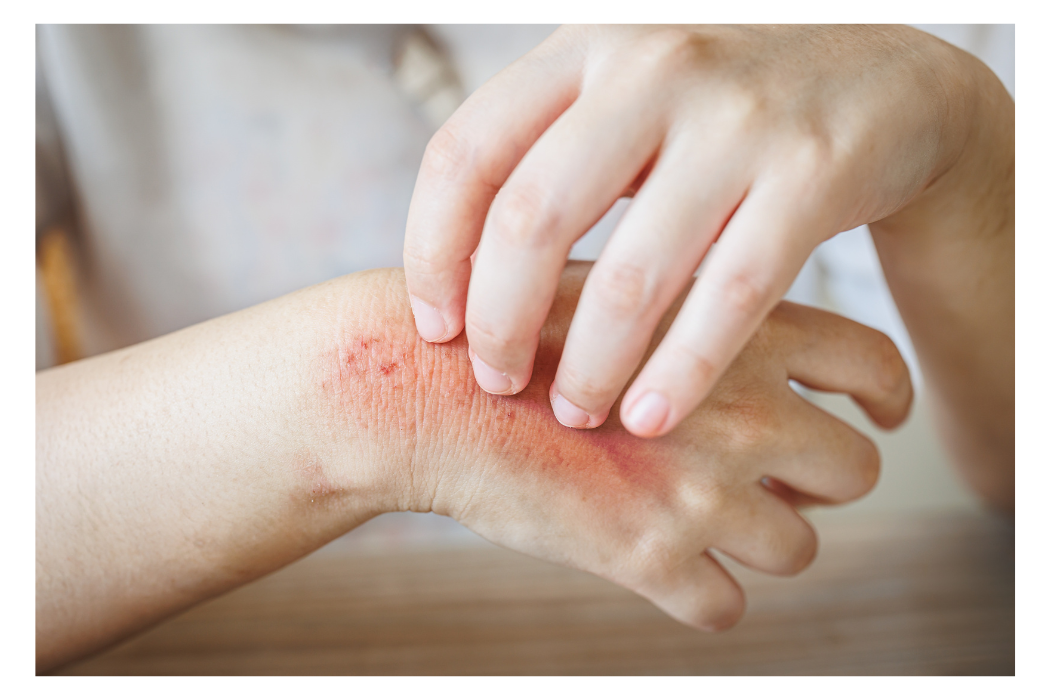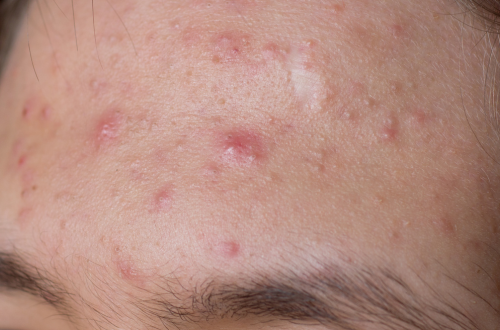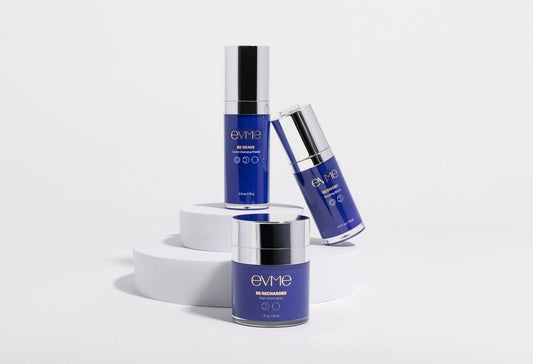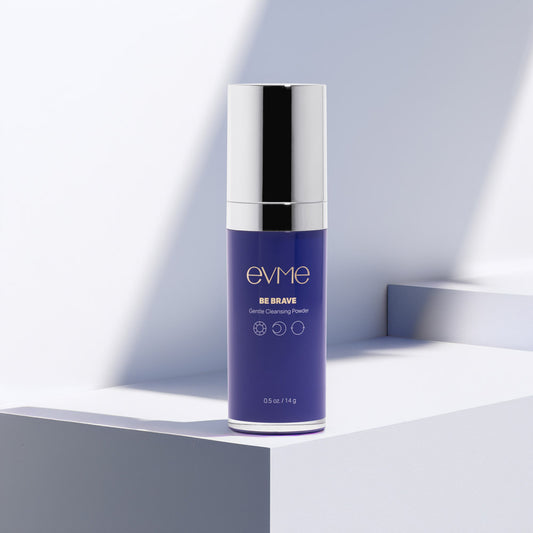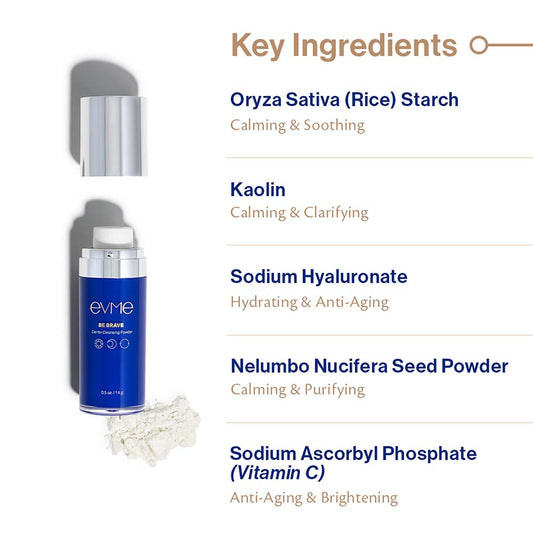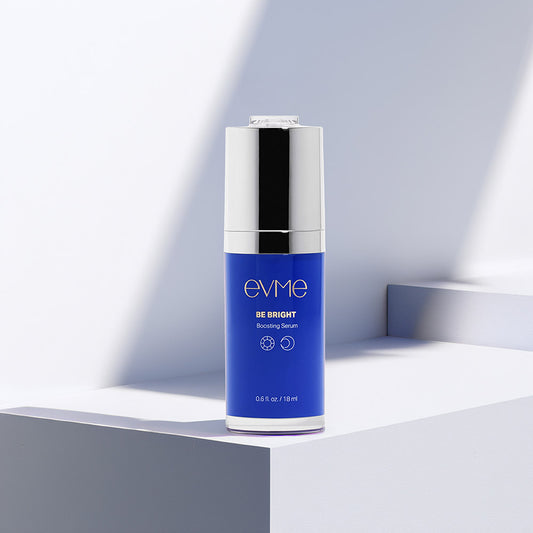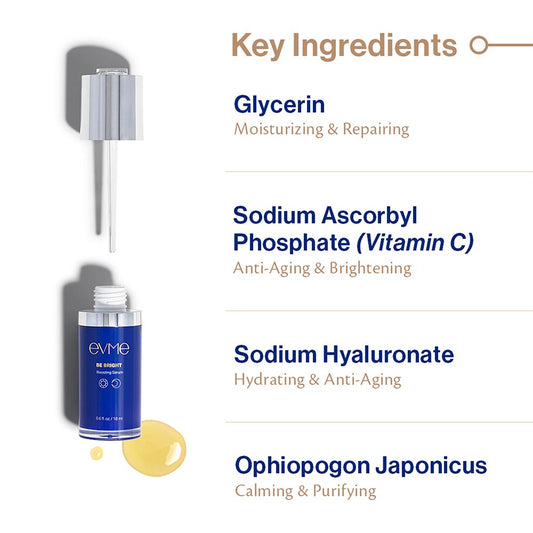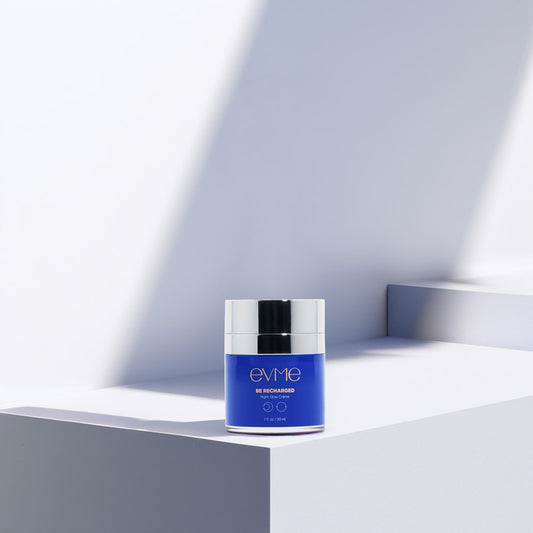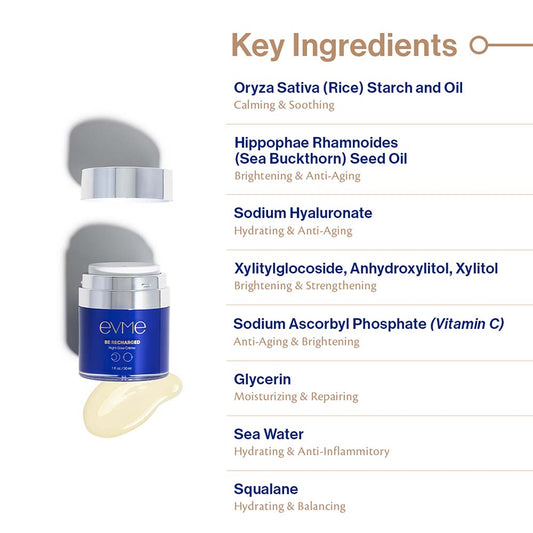Try Evme, allergist-created luxe skincare for sensitive and allergic skin.
Shop All ProductsBee-ware: The Buzz About Propolis in Personal Care Products
April 26, 2023

Back To Articles
When the “clean beauty” trend started several years ago, many people turned to more “natural” ingredients, thinking that would be better. The idea of incorporating natural ingredients into products sounds truly fantastic. Unfortunately, there are some things to be cautious of, especially if you have sensitive or reactive skin. People assume natural ingredients are not irritating or allergenic — yet they absolutely can be! These include essential oils, natural fragrances, natural dyes, and some plant-based byproducts (poison oak, poison ivy and sumac).
Today, I want to highlight a naturally sourced allergen that is being used in a variety of personal care products from lip balms and toothpastes to hair care — Propolis.
Propolis, a mixture of beeswax and other oils and resins harvested by honeybees from trees and plants, is widely used in cosmetics and medicinal products due to its suggested antibacterial and anti-inflammatory properties. While propolis may offer some range of health benefits, there is actually a large population of people who are allergic to it. It has been estimated that a quarter to half of all beekeepers will develop sensitivity to propolis in their lifetime, so more exposure to this allergen makes you more likely to develop a reaction to it in the future.
Individuals with a known allergy to propolis can develop severe allergic reactions such as itching, swelling or skin redness if they come into contact with it.
Propolis allergy has been well documented throughout the literature and it is thought to affect about 6-7% of the population, though it has been increasing in children. One Polish study of children with a history of eczema and skin allergies showed a prevalence up to 16.5%!
People who are allergic to propolis may be allergic to other related items including other fragrances and resins including Balsam of Peru, Fragrance mix I (cinnamic alcohol, cinnamic aldehyde, hydroxycitronellal, amylcinnamaldehyde, geraniol, euginol, isoeuginol, and oakmoss), as well as colophony - a rosin used in paper production, adhesives, paints, varnishes, printing inks and plasticizers. These concomitant reactions can occur in up to 50% of people with allergy to propolis.
Where can you find propolis?
Beauty products - lip products, lotions
Haircare - Shampoo/Conditioner
Toothpaste
Cough Syrups
Food - Honey
Gum
Lozenges
Ointments - Cold sore treatment
Pills
Vitamins
What common brands have propolis in their products?
Haircare - Shampoo/Conditioner
Toothpaste
Cough Syrups
Food - Honey
Gum
Lozenges
Ointments - Cold sore treatment
Pills
Vitamins
What common brands have propolis in their products?
Burt’s bees
Cosrx
Garnier Hair Care: Whole Blends Honey Treasures
Masque Bar masks
Tom’s toothpaste with Propolis & Myrrh
Cosrx
Garnier Hair Care: Whole Blends Honey Treasures
Masque Bar masks
Tom’s toothpaste with Propolis & Myrrh
Propolis is another ingredient that may not be worth it for people with sensitive or allergic skin. In order to stay safe, it is advisable to read product labels thoroughly, and if you suspect you may be allergic to propolis, it is essential to seek a specialist’s advice for immediate diagnosis and treatment.
Recommended articles
close
Evme Sans-Allergenic Skincare Products
- Choosing a selection results in a full page refresh.



